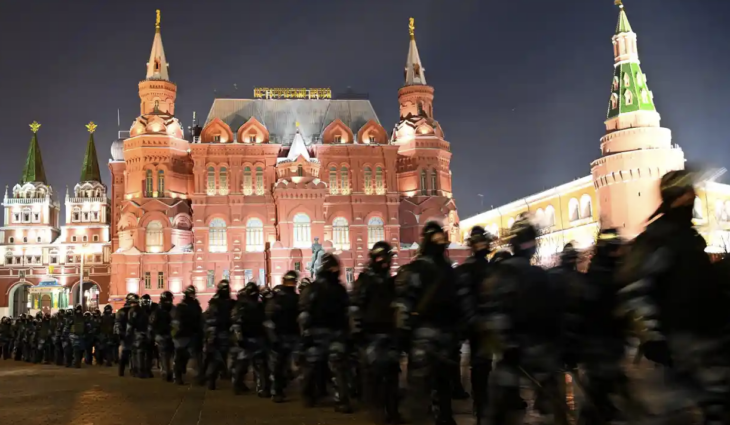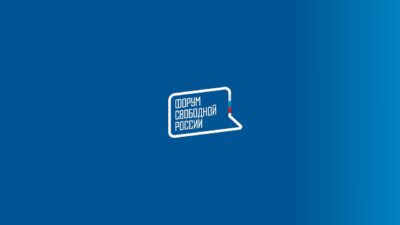
Over the last decade, I’ve covered so many protests against Vladimir Putin in Russia that they all start to blur together.
But the past month’s demonstrations against the jailing of Kremlin critic Alexei Navalny have seemed to me darker and more serious than ever. There are few fun signs and little chanting; the mood is joyless but determined. I’ve never seen the streets of Moscow locked down like they have been in 2021, patrolled by riot police called “cosmonauts” for their space-like helmets.
Every protester knows that they could end the afternoon in the back of a police van, called an avtozak, or running from police armed with batons. A reporter for Avtozak Live – an entire channel on the Telegram messaging app devoted to mass arrests – was detained three times on Tuesday.
So I’m still surprised every time I meet someone like Yulia Makhovskaya, who pauses at the end of our interview when I ask if I can include her last name, and then agrees. “I had stopped protesting for a long time, everything seemed pointless,” she said. “But something today just made me feel I had to come. Navalny was just the last drop.” She says she’s proud that her son, Nikolai, came with her. I believe they were being very brave, both to put their names on the record and to trust a western journalist to take care with their words.
Another man I meet who works for a consumer goods multinational asks me not to quote him by name – he’s afraid of how it could look at the office. Another fears his participation in a protest rally may pop up on Google in the future. It’s an illustration of how opposition is squeezed out by raising the stakes for simply speaking your mind. I recall the mood 10 years ago, at the 2011-12 Bolotnaya rallies, seeing friends from state media at the protests and magazine covers bearing the caption: “There’s more of us than it seems.” It’s hard to imagine that today.
It’s even hard to get to the protest these days. The police have paralysed Moscow on protest days by shutting metro stations and closing sidewalks, and I only managed to reach Saturday’s rally by bus – comfortably commuting to the revolution – while another friend got there by darting through traffic on a bicycle.
In this kind of weather, when temperatures can drop to -25C (as it did the night of Navalny’s arrest), I’ll pack two iPhones in case one of them freezes (literally), extra battery packs to fight the power-sapping cold, my laptop, Bernie Sanders-style finger mittens, and a notepad with pencils, since the ink in pens will freeze. I generally expect the internet to go down when the arrests start, although it’s still not clear if that’s the fault of the network or the police.
During protests, you can stay safe by following some basic rules: avoid placing yourself between the front lines of police and protesters, for instance, and avoid any physical contact with riot police.
But you also take calculated risks, such as running through traffic after a crowd of protesters, because you need to keep up. Images are more important now that we all have smartphones and you need to be there to capture those moments, even if you’re more likely to face arrest.
I have started wearing a yellow PRESS pinny during protests because I’ve found it saves time in introducing myself and riot police have less excuse if they detain you. But even those simple rules are changing. I saw police targeting journalists last week (82 were arrested on Sunday) and footage from Tuesday night, after Navalny’s sentence, showed a police officer winding up to take several swings at a camera operator, sending him crashing to the ground.
It’s clear why police are targeting journalists: they don’t want us there. Independent Russian journalists are fearless – if Russians want to know what happened at a protest, it’s enough to open up the websites of Novaya Gazeta, MediaZona, OVD-Info, TV Rain, or other independent media to get the latest.
It’s also no coincidence that they often end up in the avtozaks (where they often keep filming their own detentions).
As western reporters, we’re usually let go. Russian readers turn to us to learn how they’re being represented in international media and whether the west cares about what is happening.
And our colleagues look to us for support when they’re targeted unjustly. On Wednesday, Sergei Smirnov, editor-in-chief of MediaZona, was sentenced to 25 days for a retweet. He was charged with organising a rally that he didn’t even attend. It is clear that he should be released.




